DaMarcus Beasley: You Remember the Titles
Houston Dynamo’s DaMarcus Beasley will call time on his long career at the end of this MLS season – and he’ll want to do it with a trophy in the air like last year.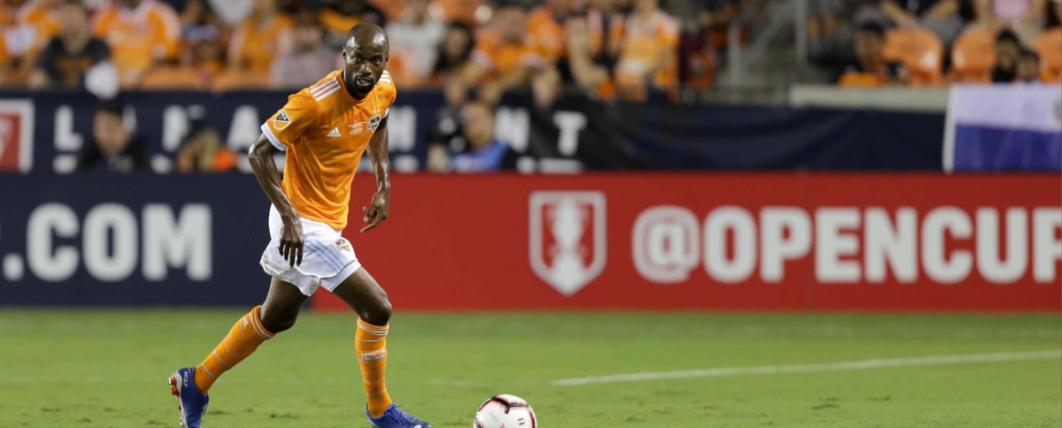
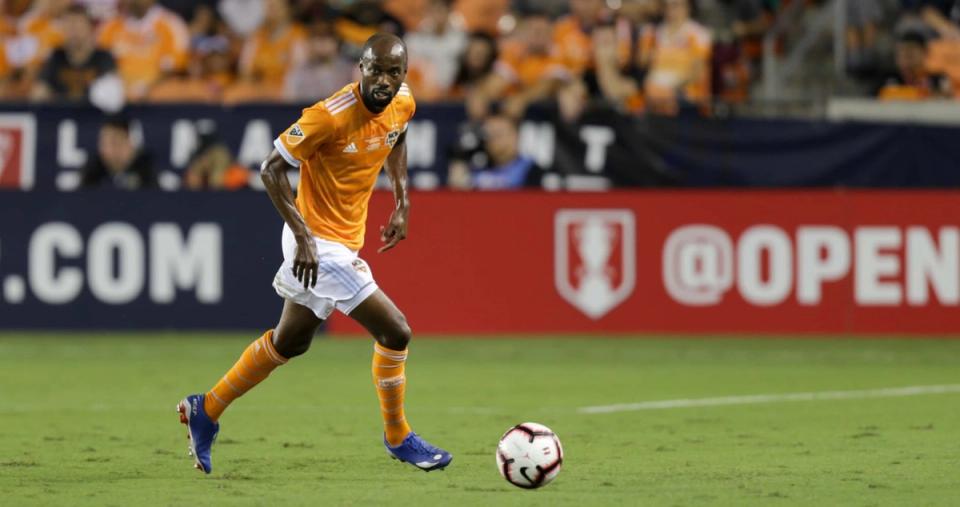


It’s a well-worn cliché to say a player has seen and done it all; well, DaMarcus Beasley sure has seen and done a lot. From his start as a jet-heeled teenage winger in the early days of Major League Soccer, he’s remained relevant, competitive and passionate through a two-decade career punctuated by four World Cup appearances for the USMNT, Champions League stints overseas and a trio of Open Cup titles with Chicago Fire (2) and Houston last year. We sat down for an in-depth and expansive chat with the Dynamo wide man, now 37 and playing out the final season of his career before retiring.
ussoccer.com: The year 2000 was a pretty long time ago. You won your first trophy as a pro with Chicago Fire in that’s year’s U.S. Open Cup. Do you remember it well?
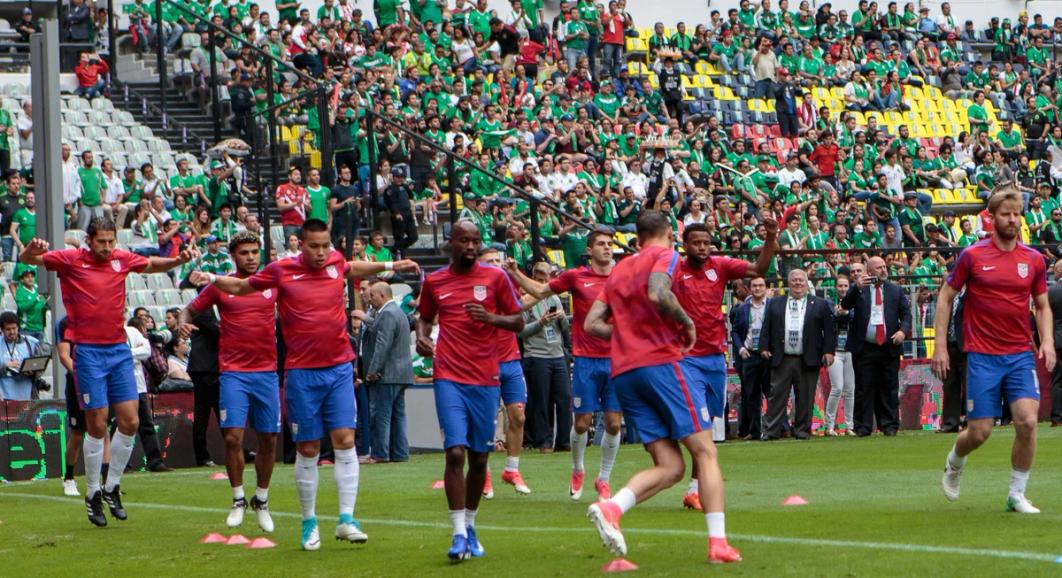
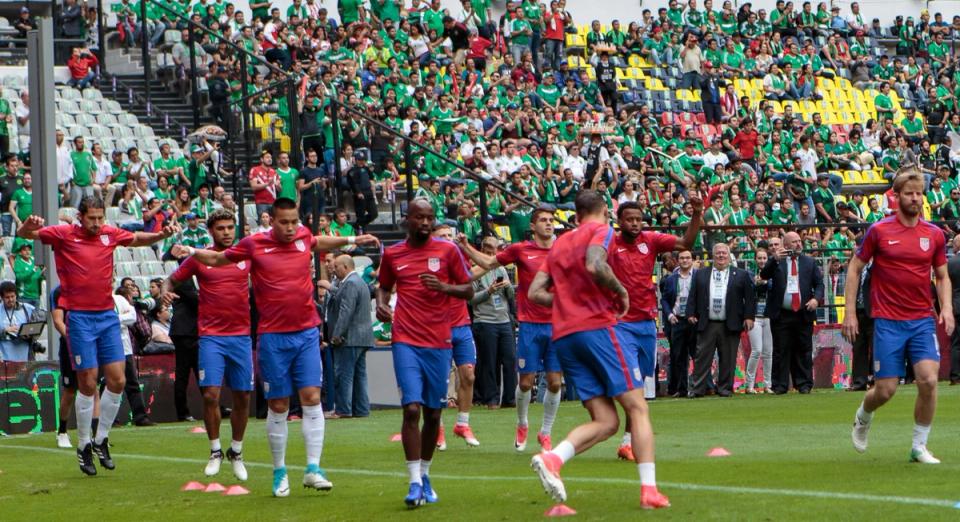
You repeated the trick in the 2003 Open Cup. Did it feel like you guys were building a kind of Open Cup dynasty in Chicago?
DB: I wouldn’t say that. But we had a team – players, coaching staff, everyone – that just had a winning mentality. League games, Open Cup games, it didn’t matter really. We just went out there to win. We tried to win at all costs. It filtered through the club from the president all the way down to the players. They expected you to win. So I wouldn’t say a dynasty, but we wanted to win and get to Finals and come out with something.
Your coach then, Bob Bradley, is a vocal advocate for the Open Cup. Did the Fire’s competitiveness and success in the tournament come directly from him?
DB: Yeah. He preached from day one that we wanted to win both trophies available: MLS Cup and the Open Cup. We didn’t see the Open Cup as a chance to take time off or relax. We used it to compete and to be better. To go get something. And that’s the same way we do it here in Houston. We put a lot of emphasis on putting out a good group to win the Open Cup. That’s the way any team that wants to win it has to do it.
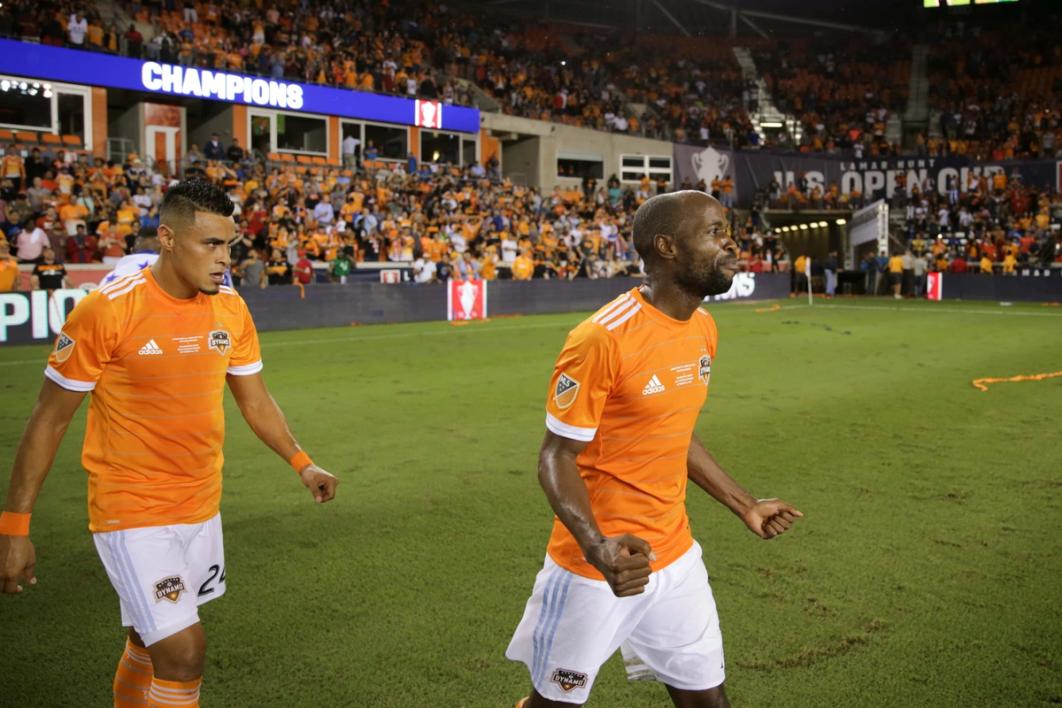
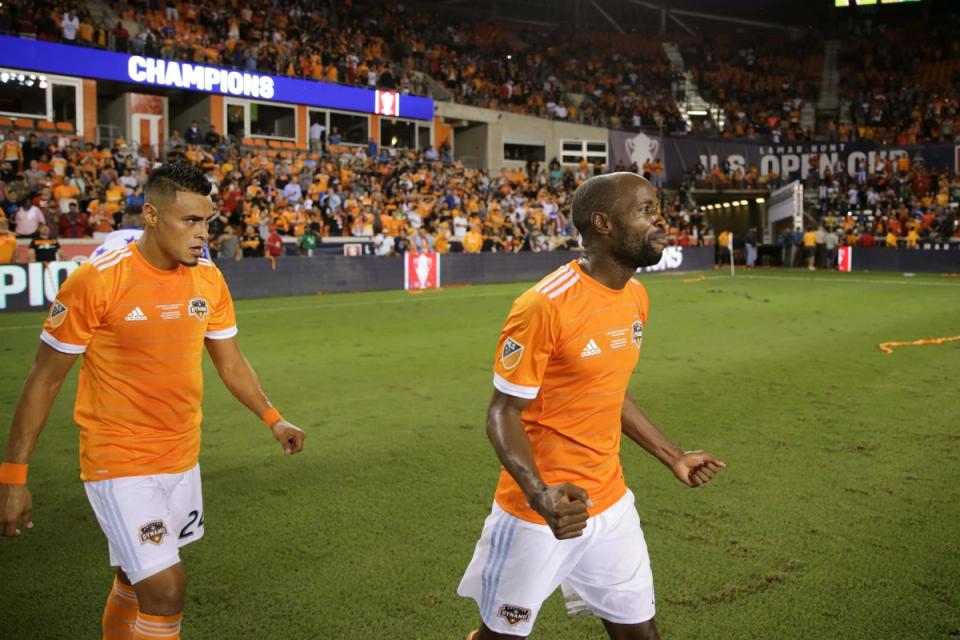
What’s the special sauce that makes a strong Cup team? Is it luck, mentality, momentum, playing at home? All of the above?
DB: It’s a little bit of all of that. For me, though, I think you make your own luck with the things you do on the field and how you respect the game. But good momentum, having guys that are fit, these are important. Having a strong camaraderie in the team is too. All of that goes together to make a good product on the field. I think we have that and hopefully we can put it all together and win. At the end of the day, that’s all people will remember. We’ll remember we were champions. You hope the guys that haven’t felt that yet can experience it and hold it with them and use it as motivation in five or ten years and pass it on. They’ll know what it really takes to be a wining team. I’ve done it quite a few times with different teams, but you never lose that feeling of winning. It stays with you.
A lot of your playing years were spent overseas, where you also won Cups. The Dutch Cup in 2005, where you scored in the last second of a Semifinal to see off Feyenoord and reach the Final with PSV. You played in the FA Cup, won two Scottish Cups, and even played in the Copa MX. Is there a special energy to Cup play, to those live-or-die games?
DB: Cups are different. It’s one game. There’s no tomorrow if you lose. The league is its own thing because you can lose and then go and get three points and get yourself back on track. In the Cups you get a little bit more intensity. It’s just that one game. You lose and you’re out. That, in itself, makes Cup games interesting, fun and hard. But that’s what makes soccer great. Open Cup is the same.
@HoustonDynamo are into the Round of 16 with a 3-2 win after surviving an early second half barrage by @AustinBoldFC. The defending champs will await Thursday's draw to see their next opponent #USOC2019
— U.S. Open Cup (@opencup) June 12, 2019
📺 Highlights 👇 pic.twitter.com/wcXyNglKK8
You’ve had staying power as a player and you’re still on the field while so many from your generation have hung up their boots. When you were a teenager winning Open Cups in Chicago, did you ever think you’d still be at it when you’re 37?
DB: To be honest, no. You dream about playing a sport as long you can. When you’re a kid, you just play. When I was 16 and 17, I was just playing. I wasn’t thinking about where I’d be in 20 years. When you’re young, you don’t think about that stuff and I think that’s what makes young players so exciting. They just play.
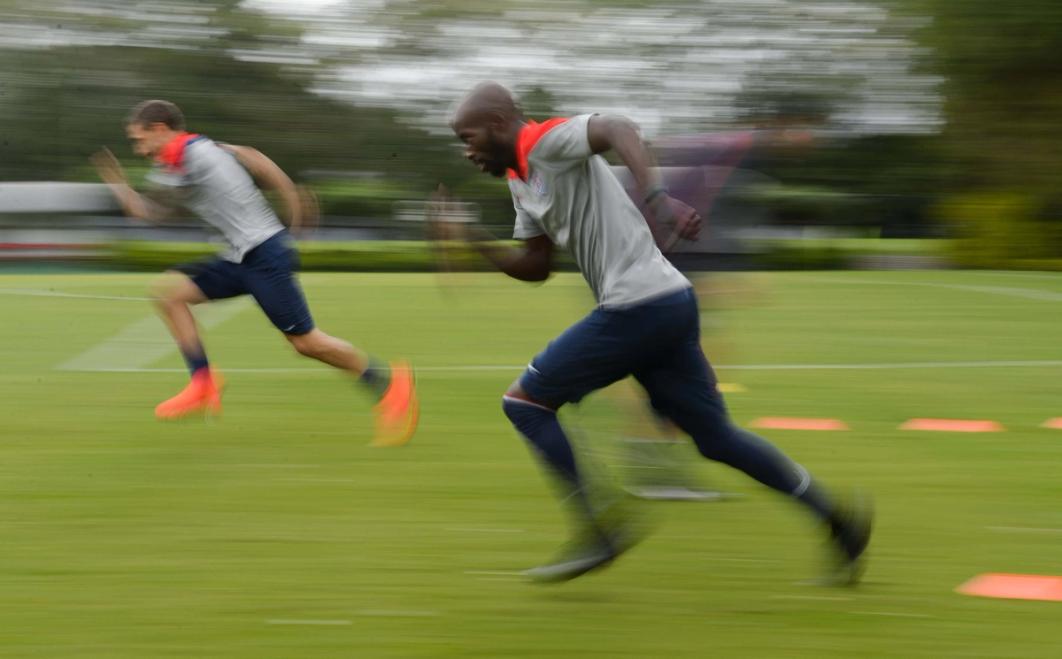
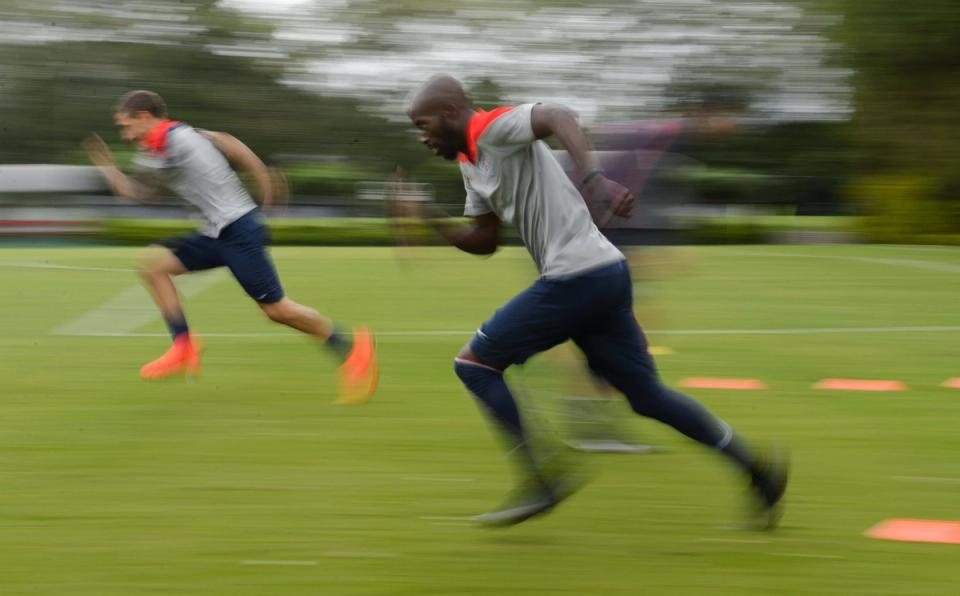
And a season in MLS is pretty long…
DB: It is a long season. Preseason starts at the end of January and if you make it all the way, you’re through to December. That’s a long season right there. When you get older, you can’t just roll out of bed and throw on your cleats and hit the field [laughs]. You can’t do that when you’re 37. At least I can’t and I don’t know many who can.
Do you still love the game like you did back when? Do you get the same charge?
DB: One hundred percent. I still get butterflies when a game’s about to start, when I hear the National Anthem. I still feel those nerves and that’s when I know I still love the game. I know I still want to play. I know I still have that fire and that desire to keep playing and to keep winning. I really hate losing – anyone I’ve ever played with can tell you this [laughs]. Even in training sessions, I just can’t stand it. I’m in a bad mood all day if I lose. I can’t take a joke after I lose. I don’t want to talk to anybody. I’m pissed and that’s it. I’ve had that mentality with me since I was young. It hasn’t gone anywhere. Those little things tell me I still have the passion and the desire.
Winning the Open Cup last year was the obvious highlight to the Dynamo’s season. How was the team able to reach the Final and win – what did you do right in the Cup?
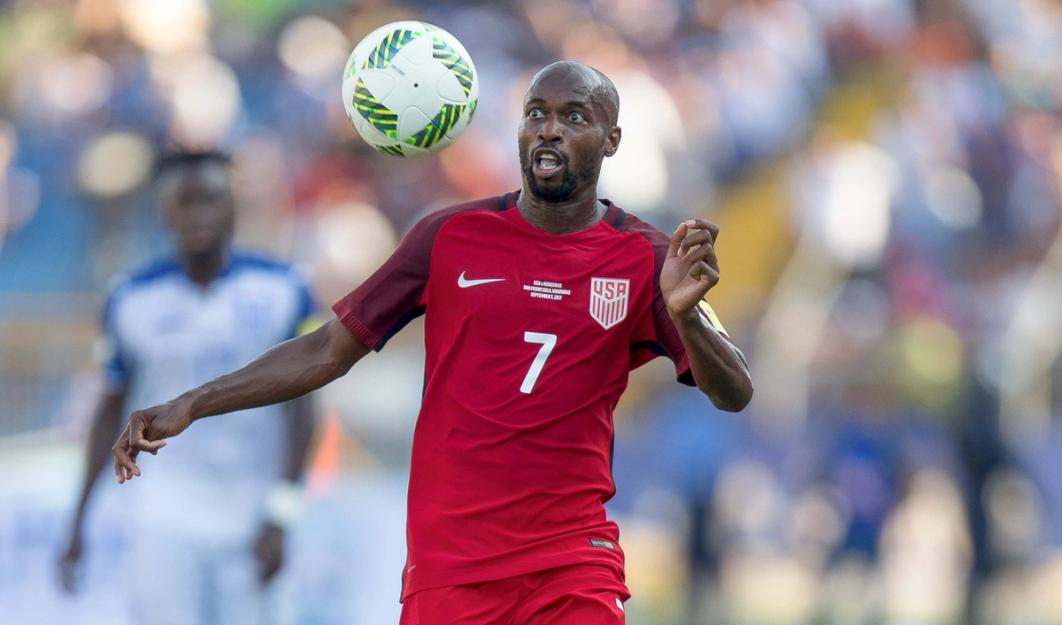
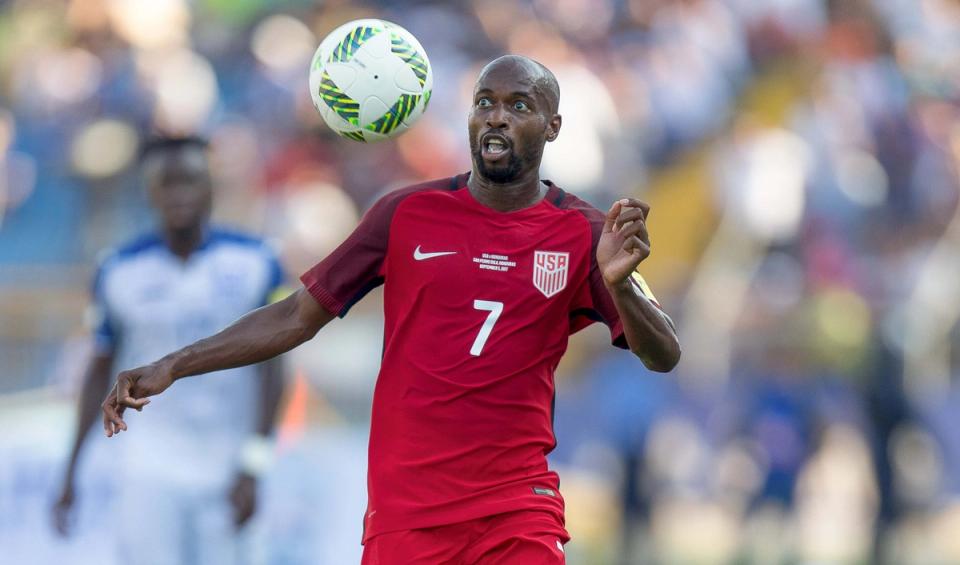
In a career that’s taken you to four World Cups, to England and Holland, Mexico and the Champions League, is it possible to pick out a highlight? Is your mind drawn to one moment, one success or defeat, above all others?
DB: I haven’t really thought about that, to be honest. I’m sure when I stop playing, things will come into my mind [Beasley has announced that the 2019 season will be his last as a professional]. But now I’m concentrating on the Dynamo, on trying to help the club get back to where it was in 2006 and 2007 when they were winning MLS titles [two in a row]. The ultimate thing is to win. You remember winning. If you win a championship or an Open Cup, you know you did something right.